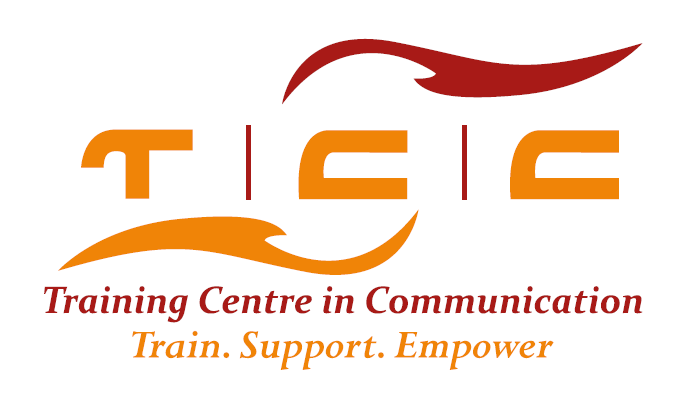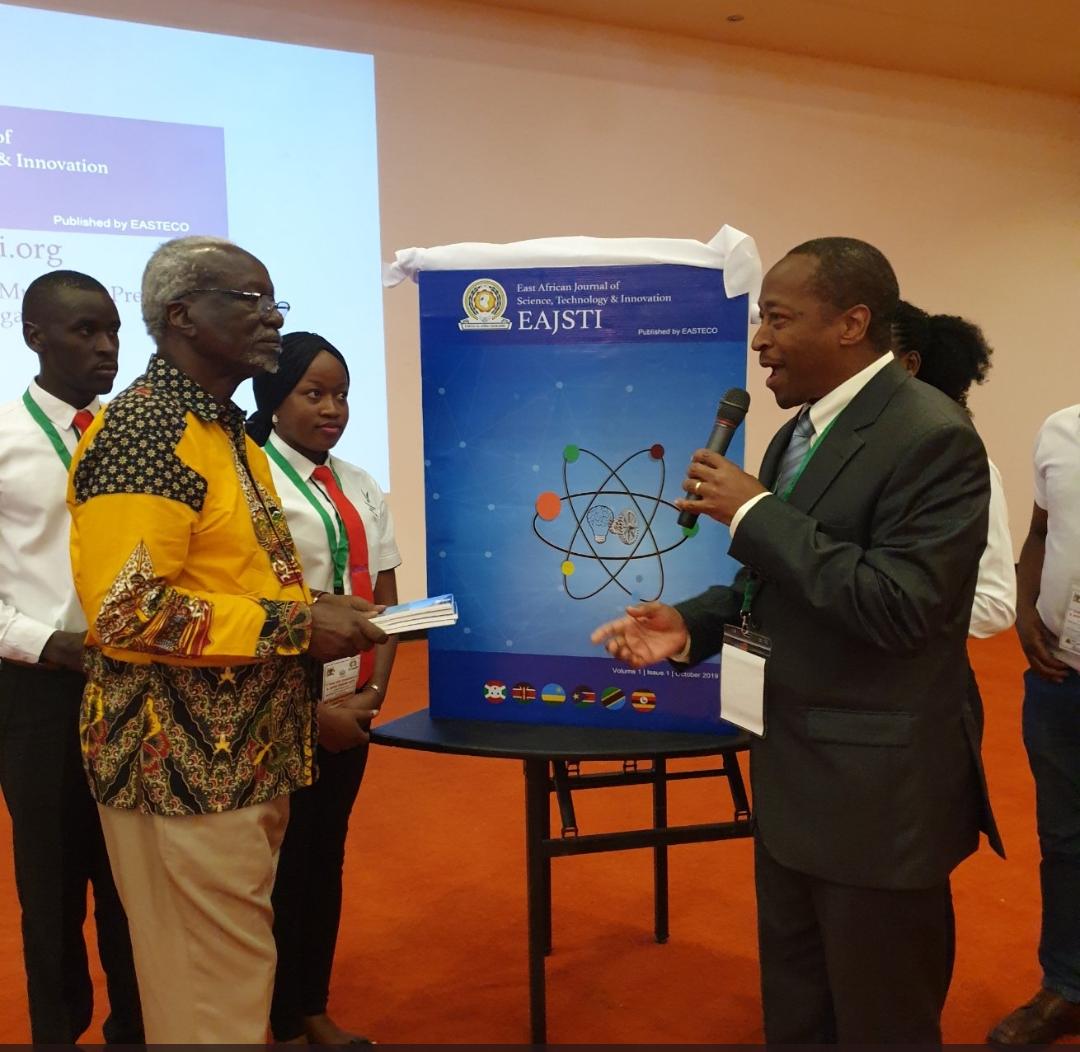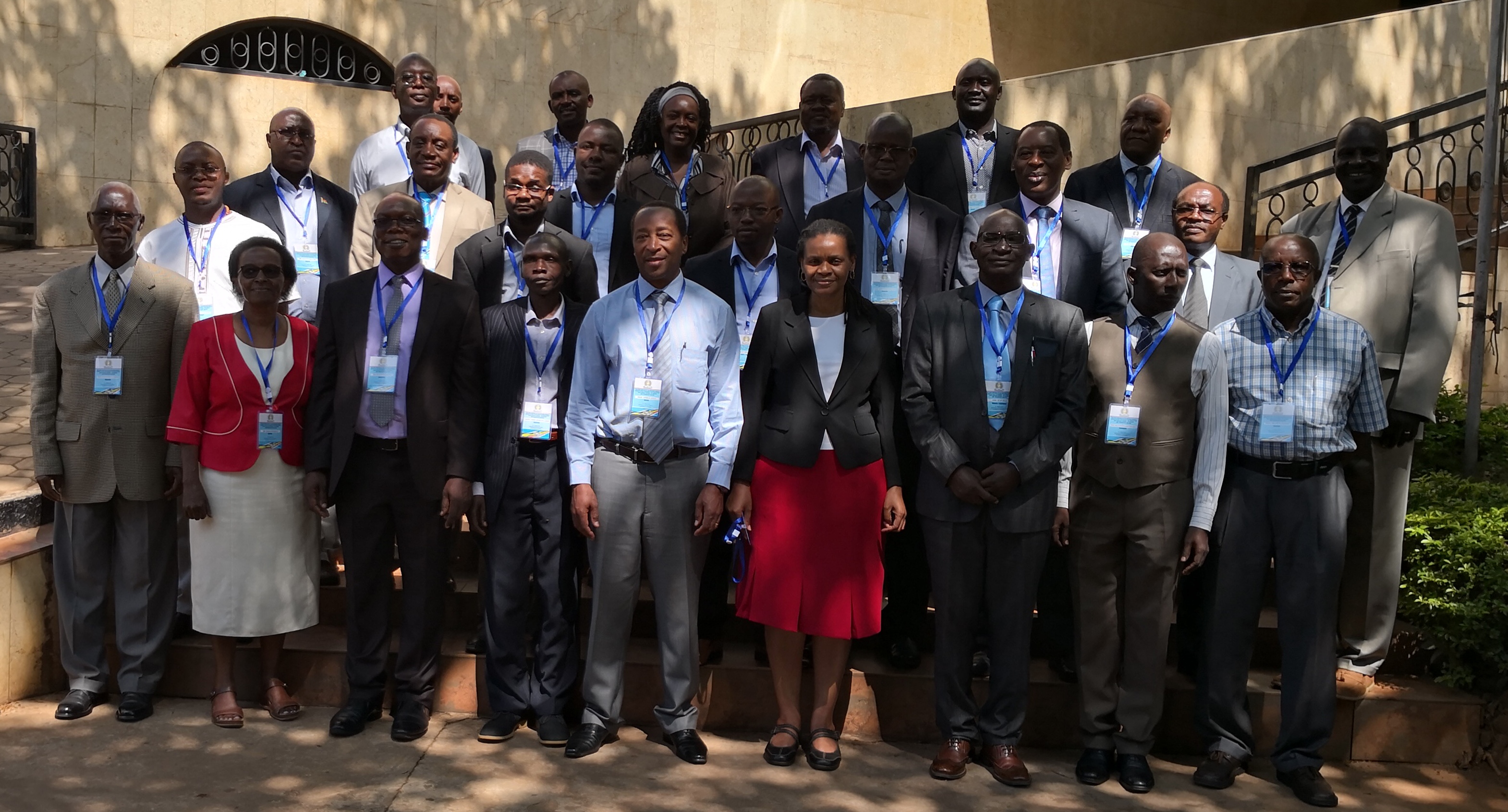News
![]()


EASTECO, PLOS, and TCC Africa sign an MOU to promote Open Science!
Advancing Open Science in Africa - three organizations collaborate to implement open science principles in seven partner states
Kigali City, Rwanda — The East African Science and Technology Commission (EASTECO), the Public Library of Science (PLOS), and the Training Centre in Communication (TCC Africa) today announced that they will collaborate in the implementation of Open Science and Open Access principles for EAC Partner States, which include Burundi, Kenya, Rwanda, South Sudan, United Republic of Tanzania, Democratic Republic of Congo and Uganda.
“We are eager to collaborate with PLOS and TCC Africa to increase the adoption of Open Science principles for our member states,” said Dr. Sylvance Okoth, Executive Secretary, East African Science and Technology Commission. “This partnership will also enable us to better promote the benefits of Open Access publishing for researchers in East Africa.”
“We already work closely with PLOS, and we are excited about teaming with EASTECO,” said Joy Owango, Executive Director, Training Centre in Communication. “All three organizations will play key roles in the communication of, and education in, Open Science practices.”
“This partnership with EASTECO, along with our continued collaboration with TCC Africa, fits perfectly with our mission to work with local organizations in order to understand and reflect their needs and values with regards to Open Science policies and practices,” said Roheena Anand, Executive Director of Global Publishing Development, PLOS.
EASTECO is responsible for the overall strategic approach and management of the programs, while PLOS and TCC will help EASTECO realize its vision. This vision includes among other things:
- Supporting and implementing Open Access publishing and Open Science principles for EAC partner states;
- Supporting conception, utilization and production of science, and translation and communication of science;
- Supporting openness of science: increasing transparency and inclusion in sharing research
All three organizations are heavily invested in an Open future and want to work with stakeholders across the scholarly communication ecosystem of East Africa to promote and increase uptake of Open Access and Open Science more broadly.
About the East African Science and Technology Commission
EASTECO was established as a semi-autonomous institution of the EAC by the 5th Extra-ordinary Summit of the EAC Heads of State held on 18th June 2007, in accordance with Chapter 16, Article 103 (a) of the Treaty on the Establishment of the East African Community, where the Partner States undertook to promote cooperation in the development of Science & Technology within the Community. https://easteco.org/historical-background/
The overall objective of the Commission is to coordinate and promote the development, management and application of science and technology in Partner States to support regional integration and socio-economic development.
About the Public Library of Science
PLOS is a nonprofit, open access publisher empowering researchers to accelerate progress in science and medicine by leading a transformation in research communication. Since our founding in 2001, PLOS journals have helped break boundaries in research communication to provide more opportunities, choice, and context for researchers and readers. For more information, visit http://www.plos.org.
About the Training Centre in Communication Africa
The Training Centre in Communication (TCC Africa) is the first African-based training center to teach effective communication skills to scientists. TCC Africa is an award winning Trust, established as a non-profit entity in 2006 and is registered in Kenya. TCC Africa provides capacity support in improving researchers output and visibility through training in scholarly and science communication.
TCC Africa’s mission is to contribute to the increase in profile, locally, and internationally, of African science, and its impact on the life of Africans, by improving skills in technical communication in all forms, at academia and other relevant forums, in Africa.
Our objective is to train. support. empower. Researchers through capacity in improving their research output and visibility.
CONTACTS
For EASTECO:
John Bosco Byamugisha
Grants and Publications Assistant
+250785175466
For PLOS:
David Knutson
Sr. Communications Manager, PLOS, USA
651-260-8288
dknutson@plos.org
For TCC Africa:
Public Relations Team
Training Centre in Communication
(Through the School of Biological Sciences Linkage)
Gecaga Institute Bldg.,
Chiromo Campus, University of Nairobi
EMAIL: pr@tcc-africa.org ,info@tcc-africa.org
============================================================================================
EAJSTI LAUNCHED
East African Science And Technology Commission Holds the 1 st East African Community
Science, Technology and Innovation Conference, 23-25 October 2019, Kampala, Uganda and launches EAJSTI

Rt. Hon. Kirundi Kivejinja (L) Uganda Minister in charge of EAC launched the EAJSTI. On the right is the Editor -in Chief, Prof. George Gitau
The East African Science and Technology Commission (EASTECO) in collaboration with the Inter-university Council for East Africa (IUCEA), the East African Business Council (EABC), and the East African Development Bank (EADB) holds the 1st EAC Science, Technology and Innovation Conference (STI Conference), and the Academia-Public-Private-Partnership Forum (APPPF) Dialogue Session under the theme: Science, Technology and Innovation (STI) as a Catalyst Towards Achievement of East Africa Community Vision 2050. The STI Conference is a biennial event which provides opportunity for researchers, scientists, technologists, industrialist and innovators from the academia, public and private sectors to share research and development information for advancement of knowledge, technology and innovation in the EAC region. APPPF Dialogue Session, on the other hand, is an annual event that aims to enhance collaboration and networking among various sector for increased regional integration and socio-economic transformation. This year, the two events were held back to back, beginning with STI Conference on 23-24, followed by APPPF Dialogue on 25 October 2019 in Kampala Uganda. In addition, the event hosted a three day exhibition, beginning on 23 – 25 October 2019. About 300 participants consisting of leaders from the Academia, the private and the public sectors from all Partners States attended.
The first issue of the East African Journal of Science, Technology and Innovation (EAJSTI) was launched by the guest of honor on 25th October 2019. EAJSTI is a multidisciplinary, open access and peer review journal, publishing original research of relevance to the East African Community (EAC) region, covering basic and applied research in science, technology and innovation. The goal of the Journal is to enhance, advance and disseminate scientific, technological and innovative knowledge that supports regional socio-economic development. The objectives of the journal include Supporting the development of evidence-based policies; Providing an avenue for disseminating scientific research and technological findings to researchers, professionals, industry and other stakeholders in the EAC and beyond; Increasing the number and quality of scientific publications from the EAC Partner States; Advancing and opening up the new frontiers for further research in science, technology and innovation domains; Enhancing visibility of the regional scientific and technological research, and; Promoting international recognition of local researchers and professionals. The journal publishes articles in the areas of Agriculture; Food Security and Rural Development; Natural Resources and Environmental Management; Health and Wellbeing Science; Infrastructure; Energy and Industrial Development, and; Information Communication Technology. The journal has been established through collaboration between the East African Science and Technology Commission (EASTECO), the Inter-University Council for East Africa (IUCEA), and the Nelson Mandela African Institute for Science and Technology (NM-AIST). It is expected that EAJSTI will, among other things, provide a strong forum, linkage and network for exchange of scientific knowledge, technology and innovations that are generated from Universities, Research Institutions and the Industrial sectors in East Africa and beyond. The EAJSTI will enhance the sharing of knowledge to its readership as it continues to increase and develop a rich database of research output in science, technology and innovation in wide thematic areas. Given the scarcity of regular and reliable scientific journals in production within the East African region, the EAJSTI will fill this gap, which is created by the absence of research outputs available from well recognized and reputable peer-reviewed journals. The EAJSTI will endeavour to support the world-renowned scientists, upcoming scientists and graduate students from both the East African region and globally to continue to publish scientific outputs, new technologies, and innovations.
The East African Science and Technology Commission is a semi-autonomous institution of the East African Community, which is mandated to coordinate and promote the development, management and application of Science and Technology in Partner States to support regional integration and socio-economic development. Among other responsibilities, the commission promotes the exchange and utilization of scientific information, and supports the dissemination of research and development findings in Partner States. This is in line with the Treaty for the Establishment of the East African Community which recognizes the fundamental role of science and technology in economic development and stipulates, in the Chapter 16, Article 103, that the community shall promote cooperation in the development and application of science and technology within the Partner States. Article 80, on industrial development further reinforces the need for development of science and technology to accelerate socio-economic development in the community.
LAUNCH OF CALL FOR PAPERS FOR THE EAST AFRICAN JOURNAL OF SCIENCE, TECHNOLOGY AND INNOVATION

Editorial Board members pause for a group photo with the Executive Secretary EASTECO Ms Gertrude Ngabirano (fourth from Right), and the Editor in Chief of EAJSTI Prof. George Gitau (fifth from left)
As part of the strategies towards promoting research in science, technology and innovation, the East African Science and Technology Commission (EASTECO) has launched a region journal to enhance the publication of various findings.
The East African Journal of Science, Technology and Innovation (EAJSTI) is aimed at attracting science researchers, academia and science students, to publish original research relevant to the East African Community (EAC) region, with basic applied research.
This is the first journal of its kind in the region.
It is funded by six EAC states to boost research for the development of the region. The EASTECO, executive sectary, Gertrude Ngabirano said they target new knowledge which can be used to address issues affecting the region.
Speaking at the inauguration of the editorial board of the journal, at Imperial Royale Hotel in Kampala yesterday, Ngabirano said the region is rich in knowledge but is never publicized for dissemination.
“We have very good research but the challenge has been publishing our information in high impact journals which are not even located here. They are never read by our students and researchers. After publishing them; we still have to pay subscription fee for access and not easy to get,” she added.
She explained the new journal will open up for publication of such content. “Publishing is no big deal until someone reads and reacts to your content, cites it and uses it to make a product. So we want this new knowledge generated to be disseminated to all stakeholders, policy makers and private sector to take it up. It will also help come up with evidence based policies,” she added.
Ngabirano said it will also help other researchers to access research which has already been done, to avoid duplication.
“We shall also help with capacity building in scientific writing for PhD students for publication to help them improve to communicate science. We realized this has been a problem in the region,” she added
She said all works should be focused on practical solutions to the various problems facing the region, stressing that much of previous research produced was also irrelevant to regional issues.
“This time we want our people to publish evidence based research towards problem solving to influence the private sectors and policy makers. It will help to bring researchers and the private sector together to share the knowledge for implementation,” she noted.
Ngabirano said they have also established an Intellectual Property (IP) policy for the region to safeguard all works. The EASTECO chairman board of governors, Badru Ntege said this is aimed at promoting local content.
“There has been a gap between research output and the private sector. But through the innovations forum they will be able to meet to commercialize the applicable works,” he noted.
He said they want to create a platform where innovations can be driven out of the university walls to cause impact.
“Without science and technology; there is no development,” Ntege said. The Editor in Chief of the journal, also Professor of Epidemiology and Medicine at University of Nairobi, George Gitau said his work is to coordinate all the papers which will submitted to be reviewed by the editorial board to ensure quality.
The deputy executive secretary Inter-University Council for East Africa, Prof. Mike Kuria said this is part of the initiative of Africa’s Centre’s Excellence funded by the World Bank focusing on the field of mathematics, engineering and technology and ICT.
He noted that the program also offers 60 scholarships for women at Masters level, in the field of science and 30 from different countries have already kicked off their studies.Kuria said the journal is another platform to encourage more women in science to come out and showcase what they have.
While launching the call to submit papers to the journal, the permanent secretary, to the office of the president responsible for EAC affairs, republic of Burundi, Ambassador Jean Rigi said the move is good for technological advancement through evidence based research.
This article appeared in The New vision (Uganda) 9th April, 2019
